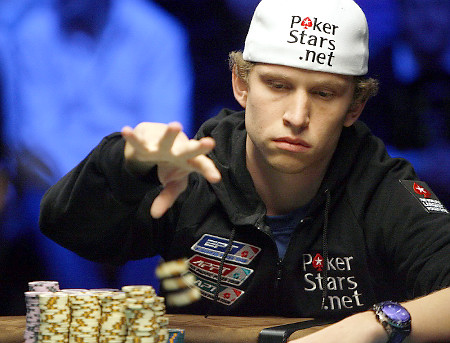At the age of 22, Peter Eastgate managed to attain the pinnacle of poker success before his career had really even gotten started. In 2008, he was the youngest-ever WSOP champion at the time, with $9.1 million in the bank from his win (minus a rather large tax demand from the Danish government).

But for Eastgate, it was too much, too young, and the cushion his fortune brought sapped the fight out of him. A nice problem to have, you might say, but achieving all you ever wanted so early in life kind of takes the edge out of existence and purpose, and with the Dane, you get the sense that he’d rather not have won the title at all.
Afterwards, by his own admission, he drifted. He moved to London, played poker tournaments, gambled, but soon began to tire of trying to win money that he didn’t really need. After all, where’s the fun in that?
In a recent interview with PokerListings’s Dirk Oetzmann, Eastgate explained the existential problems of being a multimillionaire who’s already achieved the zenith of his career in one key profession.
Throwing in the Towel at 24
In 2010, having turned 24, Peter Eastgate announced his “retirement.” He put his WSOP Main Event bracelet up for sale on eBay, and while the auction was ostensibly about raising money for charity, there was a subtext: a symbolic repudiation of poker and the poker world.
Because, as he told Oetzmann this week, he was over it, and a bona fide gambling addict, to boot.
“I grew tired of how my mood depended so much on how I fared at the tables … I was an addict, a degenerate gambler, but at some point I just got fed up,” he said.
“When I started out, 10 years ago, I thought I’d do this every day for the rest of my life. When I heard people say they wanted to make enough money to be independent and then quit, I couldn’t understand it.”
Taking Stock
But that’s exactly what he did, and now, he says, he only occasionally follows the game. He describes the idea of hearing that Viktor Blom, for example, has won $300,000 on one day and lost $200,000 the next as “like watching the development of a stock that I don’t own.”
“I can’t think of anything more irrelevant to me,” he says.
So what has he been doing instead? Well, in 2013, he moved back to Denmark to study biomedicine, but failed his exams, because he “just couldn’t wrap his head around it.”
Since then, he’s been “just drifting” again, now a completely financially independent 30-year-old, trying to rediscover the purpose he had before he won the WSOP, desperately seeking normality.
“I’m not bored,” he says, almost sounding like he’s trying to convince himself. “After spending so much time by myself, I’m not bored anymore. But if you look at it from the outside, it would sure look boring.
“I know I don’t want to carry on like this for the rest of my life. I need to set some goals, find a passion one way or the other . . . I don’t have any financial worries, so I can’t complain,” he adds.
Not that that has ever stopped anybody.


